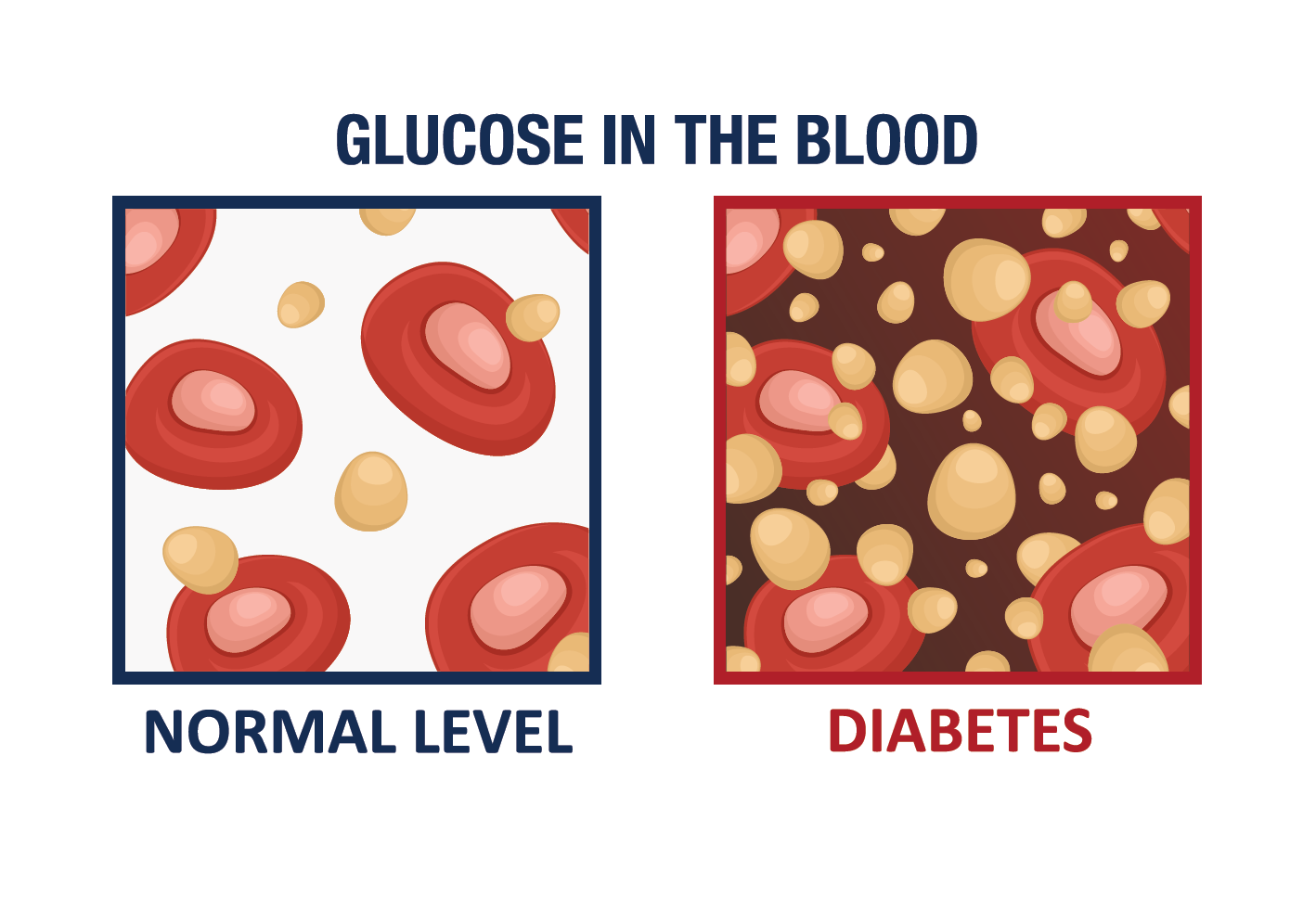Diabetes Mellitus is a disease that affects the body’s ability to absorb glucose, which is a form of sugar and a major source of energy. There are two types of diabetes, Type 1 (formerly known as juvenile diabetes) and Type 2 (formerly called adult onset diabetes).
Both cause high levels of glucose in the blood stream. High blood sugar causes many of the long-term effects of diabetes. Too Much sugar in the blood damages the linings of the arteries of all sizes, and that can cause atherosclerosis, in which arteries are weakened and/or clogged with plaque.
Atherosclerosis in Diabetic Patients can lead to:
- Kidney Damage.
- Retinopathy.
- Neuropathy .
Treatment of Diabetes
Because of the effects, it is very important to aggressively treat both types of diabetes to minimize long-term damage. Careful maintenance of the blood glucose level is the primary goal of this treatment. The HbA1c is a test that estimates the average glucose level over a three-month period. Maintaining an HbA1c <7% is known to lower the risk of amputation, heart attacks, stroke and onset peripheral artery disease.
Avoiding foods and snacks high in sugar (which can include seemingly innocuous items such as white bread and pasta) can help maintain healthy glucose control. In addition, exercise helps to burn energy and improve your body’s ability to keep your glucose at a healthy level.
Ultimately, medication is often required to maintain this control. For Type 2 diabetes, it has shown that use of an insulin sensitizing medication (usually an oral agent) dramatically decreases cardiovascular complications compared to using only insulin. Consultation with a diabetes specialist can help manage your diabetes optimally.
Uncontrolled Diabetes Makes Varicose Veins Worse
Uncontrolled levels of blood glucose damage the veins and can delay blood passing through some smaller blood vessels in the legs and feet. The sugary consistency of the blood may cause plaques to form within arteries and veins already compromised by varicosities.
Non-invasive treatment options for varicose veins revolve around maintaining a healthy lifestyle, such as exercise, limiting salt intake, elevating the legs while at rest, and avoiding injury. Therefore, recommendations for managing Diabetes are very similar to those for managing varicose veins.




